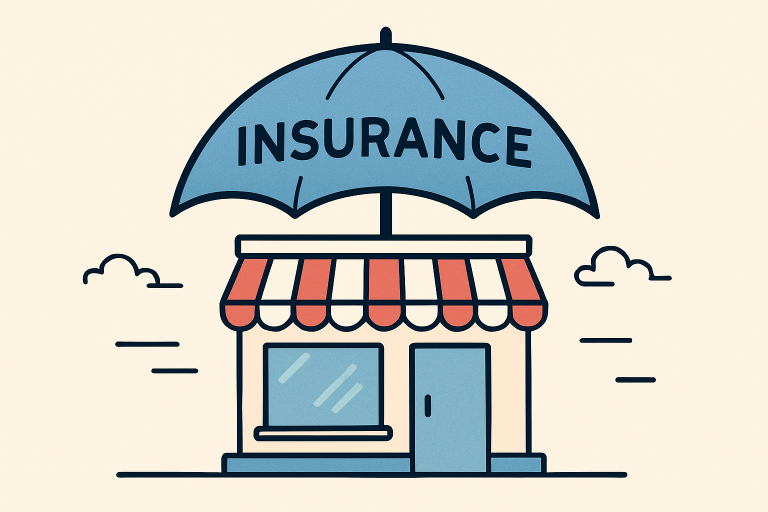
Running a small business brings both immense rewards and unique challenges. While handling day-to-day operations and striving for growth, it’s vital to shield your business from unpredictable threats that could undermine your hard work. Securing the right insurance coverage is one of the most important steps you can take toward lasting stability. Solutions like The Hartford small business insurance cater to a variety of industries and provide flexible options to suit evolving needs.
Insurance can appear complicated, but understanding key policy types ensures you’ll be prepared for unexpected losses—be it a natural disaster, a lawsuit, or a cyberattack. As economic factors like inflation and ongoing labor shortages shift the risk landscape, it’s more important than ever for business owners to tailor their coverage thoughtfully. From statutory requirements to prudent risk management, having the proper protections in place inspires confidence as your enterprise grows.
Customizing your insurance plan isn’t just about checking off boxes—it’s about building a safety net that fits your unique operations. By staying informed and proactive, you’ll set your business up for resilience, whatever the future holds. And as the costs of claims rise, selecting comprehensive coverage can be the deciding factor in your business’s ability to recover quickly after hardship strikes.
Whether you’re running a bustling retail store, a small tech consultancy, or a food service business, choosing the right combination of insurance policies is essential to your future success.
General Liability Insurance
General liability insurance is the cornerstone of small business protection. This coverage shields your enterprise from financial loss in the event of claims related to bodily injury, property damage, or personal injury—whether those claims arise from customers, visitors, or third parties. For example, if a customer slips and falls at your place of business and sustains an injury, general liability insurance can help cover medical costs, legal defense fees, and settlements. As lawsuits against small businesses remain common, this policy protects not only your assets but also your reputation. For deeper insight into why liability insurance is so important, consider data from Business News Daily, which outlines the most frequent claims impacting small businesses.
Property Insurance
Investing in property insurance is essential for safeguarding your physical assets. Whether you own or lease your workspace, this policy provides coverage for damage caused by fire, theft, vandalism, storms, or other disasters. It protects not only your buildings but also the tools, inventory, computers, and furniture crucial to your operations. Without adequate property insurance, recovering from even a minor fire or unexpected theft can be financially crippling. According to resources from the New York State Department of Financial Services, keeping inventory lists updated and reviewing policy limits regularly helps ensure you’re never underinsured.
Workers’ Compensation Insurance
Workers’ compensation insurance is legally mandated in most states for businesses that employ people. This coverage provides medical benefits and wage replacement to employees who are injured or become ill as a direct result of their job. Protecting both your staff and your company, workers’ compensation helps manage costs associated with workplace injuries while shielding you from potential employee lawsuits. Coverage requirements can vary by state, so make sure you check your local regulations to stay compliant and adequately protected.
Cyber Liability Insurance
As businesses increasingly rely on technology and digital transactions, cyber risks have grown exponentially. Cyber liability insurance is designed to cover expenses resulting from data breaches, ransomware attacks, and the theft or loss of sensitive customer information. Policies typically help pay for notification costs, public relations efforts to repair reputational damage, legal fees, and third-party lawsuits. With the rise in cybercrime affecting businesses of all sizes, having this coverage is now considered a best practice for any organization that handles digital data.
Business Interruption Insurance
Disasters don’t just cause physical damage—they can halt your operations entirely. Business interruption insurance bridges the financial gap, covering lost income and ongoing operating expenses if you’re forced to temporarily close due to a covered event like a fire or severe weather. This policy helps ensure you can pay rent, make payroll, and cover utilities while you get back on your feet, bolstering your business’s resilience during periods of uncertainty.
Professional Liability Insurance
Professional liability insurance, also known as errors and omissions (E&O) insurance, is crucial for businesses that offer services or expert advice. If a client alleges you delivered subpar work, made a mistake, or failed to perform agreed-upon services, this coverage helps pay for legal costs and settlements. For consultants, accountants, designers, and other service-based enterprises, professional liability insurance safeguards both finances and reputation against costly allegations of negligence or misrepresentation.
Commercial Auto Insurance
If your business uses vehicles for deliveries, transport, or service calls, commercial auto insurance is a necessity. This policy covers accidents involving company vehicles, protecting against bodily injury liabilities, property damage, and physical damage to your autos. It differs from personal auto insurance by accounting for the increased risks and usage patterns typical in business operations. Ensuring the right vehicles and drivers are listed on your policy is key to staying fully protected.
Tailoring Your Insurance Coverage
No two businesses are exactly alike, and insurance solutions shouldn’t be one-size-fits-all. Conduct regular risk assessments to pinpoint the coverages your business needs most. Work with a reputable insurance agent or broker who understands your industry and can recommend the right mix of policies, coverage amounts, and endorsements. As your business grows, routinely review and update your policies to reflect changes in inventory, staffing, revenue, and risk exposure. This proactive approach ensures that your safeguards evolve in tandem with your ambitions and changing market conditions.
Understanding and thoughtfully investing in the right insurance policies allows you to protect your small business from unexpected challenges and seize every opportunity with confidence. With the right coverage in place, you’re prepared not only to survive setbacks but to thrive in a changing world.